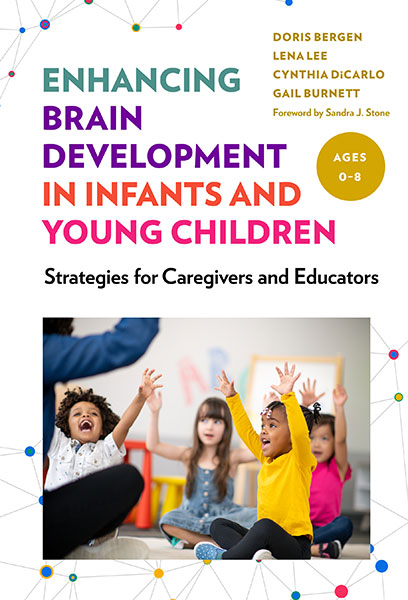Lena Lee is co-author of Enhancing Brain Development in Infants and Young Children: Strategies for Caregivers and Educators and a professor of teacher education at Miami University. She also directed a grant-funded project for low-income preschool enhancement.
As an early childhood teacher educator, researcher, former teacher of young children, as well as mother, I have always been interested in brain development. How the human brain works fascinates me and I often apply what I know about brain development when I teach students, as I raise my own child, or as I even motivate myself.
Recently, I have witnessed that many American children suffer from mental illness and emotional instability more than ever before and there are a significant number of students who are from various social, economic and cultural backgrounds in American society. As a result, I have been looking for ways to support these children effectively by seeking a variety of approaches to implement in early childhood classrooms.
It is well known that a child’s first five years of early childhood are extremely critical for brain development. From my perspective, I believe that knowing how young children’s brains develop, how positively or negatively they change depending on environmental factors, and how we can provide brain-positive ways to improve young children’s meaningful experience is extremely important.
However, I have noticed that there are not many professionals, parents and policymakers who would not know what to do with this information. Even if some people know about the importance of brain development in the early years, they are not quite sure of what and how to do for enhancing children’s brain development.
This book is for those who teach, interact, and educate young children and want not only to know more about their brain development of young children, but also to take a “brain-friendly” educational approach. This book, Enhancing Brain Development in Infants and Young Children: Strategies for Caregivers and Educators, is designed to offer basic information about brain development and practical implications of it with real case examples and episodes. In particular, one of the emphasis of this book is the impact and the uses of media and technology, which is very important to reflect to understand contemporary childhood and education in better and more relevant ways. With my colleagues, I hope that this book helps parents, caregivers, and teachers easily understand children’s brain development and effectively apply it to their everyday lives and practices.
Featured image by: Willsantt from Pexels

